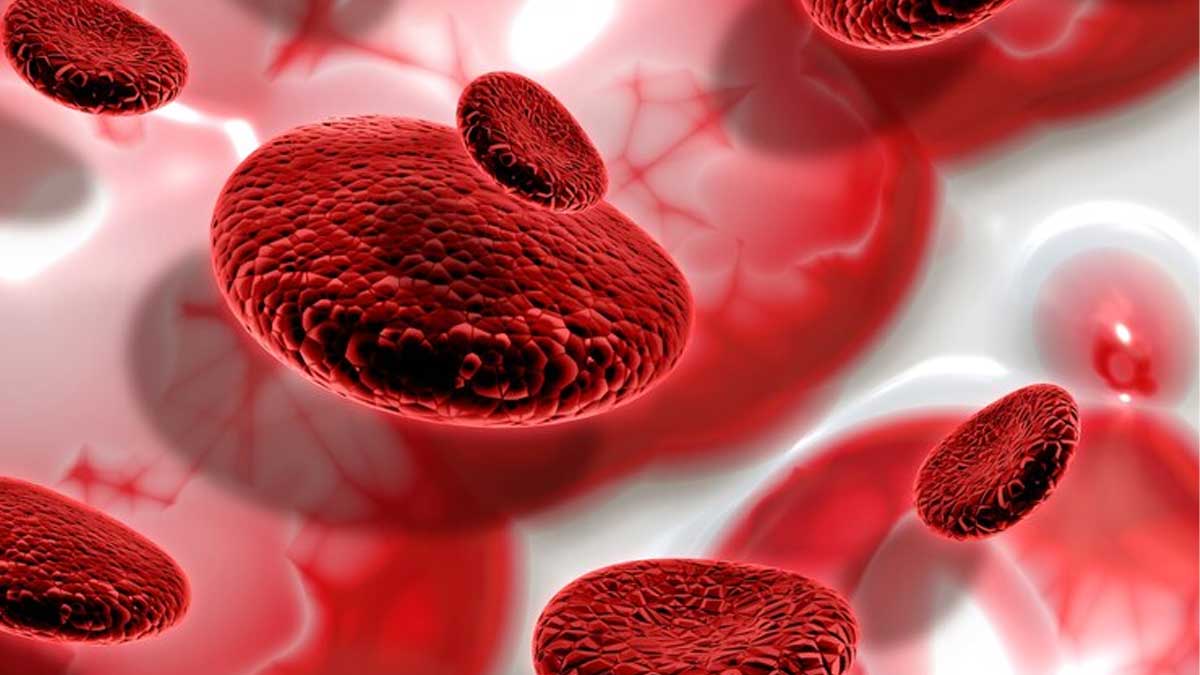
Many factors can contribute to insufficient levels of vitamin B12. In an interaction with the OnlyMyHealth team, Dr J Harikishan, Senior General Physician, Kamineni Hospitals, Hyderabad, says that low intake, especially in vegans and strict vegetarians who exclude animal products without consuming fortified foods, can contribute to vitamin B12 deficiency. If left untreated, it can lead to several health complications.
Table of Content:-
A study published in the British Medical Journal (BMJ) recently found that untreated vitamin B12 deficiency can lead to symptoms related to blood and bone marrow in 15% of the patients. Let's take a look at them.
Also Read: Mouth Ulcers Could Signal Vitamin B12 Deficiency: Other Oral Signs To Watch Out For
Pancytopenia

In simple terms, pancytopenia refers to the deficiency of all three major blood cell types: Red Blood Cells (RBCs), White Blood Cells (WBCs), and platelets. Symptoms may include fatigue, weakness, pale skin, shortness of breath, frequent infections, and easy bruising or bleeding.
Macrocytosis
Macrocytosis is another medical condition that has been associated with vitamin B12 deficiency. It occurs when RBCs are larger than normal. According to the Mayo Clinic, this condition does not usually show any signs and may be detected by chance in a routine blood test. It can also arise due to a folate deficiency, liver disease, alcoholism, or hypothyroidism.
Hypersegmented neutrophils

Hypersegmented neutrophils indicate an abnormality in the blood associated with neutrophils, a type of WBC. It usually suggests a possible deficiency in vitamins like B12 or folate and is an important diagnostic feature of megaloblastic anaemia, according to Dacie and Lewis Practical Haematology (Twelfth Edition).
Hyperplasia
Hyperplasia occurs when the number of cells in an organ or tissue increases, leading to its enlargement; for instance, Benign Prostatic Hyperplasia (BPH), also known as an enlarged prostate gland. While hyperplasia is usually a normal and reversible process, in some cases, it may progress to abnormal cell growth, which can cause concerns about potential cancer development.
Megaloblastic Anaemia
Bone marrow is the soft, spongy tissue that plays a crucial role in the production of blood cells, including RBCs, WBCs, and platelets. However, when the blood cells start to grow unusually large, structurally abnormal, and do not function normally, it can lead to a condition called megaloblastic anaemia, according to the National Organization for Rare Disorders. Again, vitamin B12 and folate deficiencies are the two most common causes.
How To Improve Vitamin B12 Levels In The Body

According to Dr Harikishan, vitamin B12 cannot be produced by the body naturally, which is why it must be acquired from dietary sources or supplements.
He added, “Animal products like meat, fish, poultry, eggs, and dairy are rich in B12. Absorption of this vitamin occurs in the small intestine with the assistance of intrinsic factor, a protein generated in the stomach.”
Apart from vegans and vegetarians, older adults, individuals with gastrointestinal disorders, gastric bypass patients, and those who consume excess alcohol should be monitored for vitamin B12 deficiency at all times, the doctor concluded.
Also watch this video
How we keep this article up to date:
We work with experts and keep a close eye on the latest in health and wellness. Whenever there is a new research or helpful information, we update our articles with accurate and useful advice.
Current Version